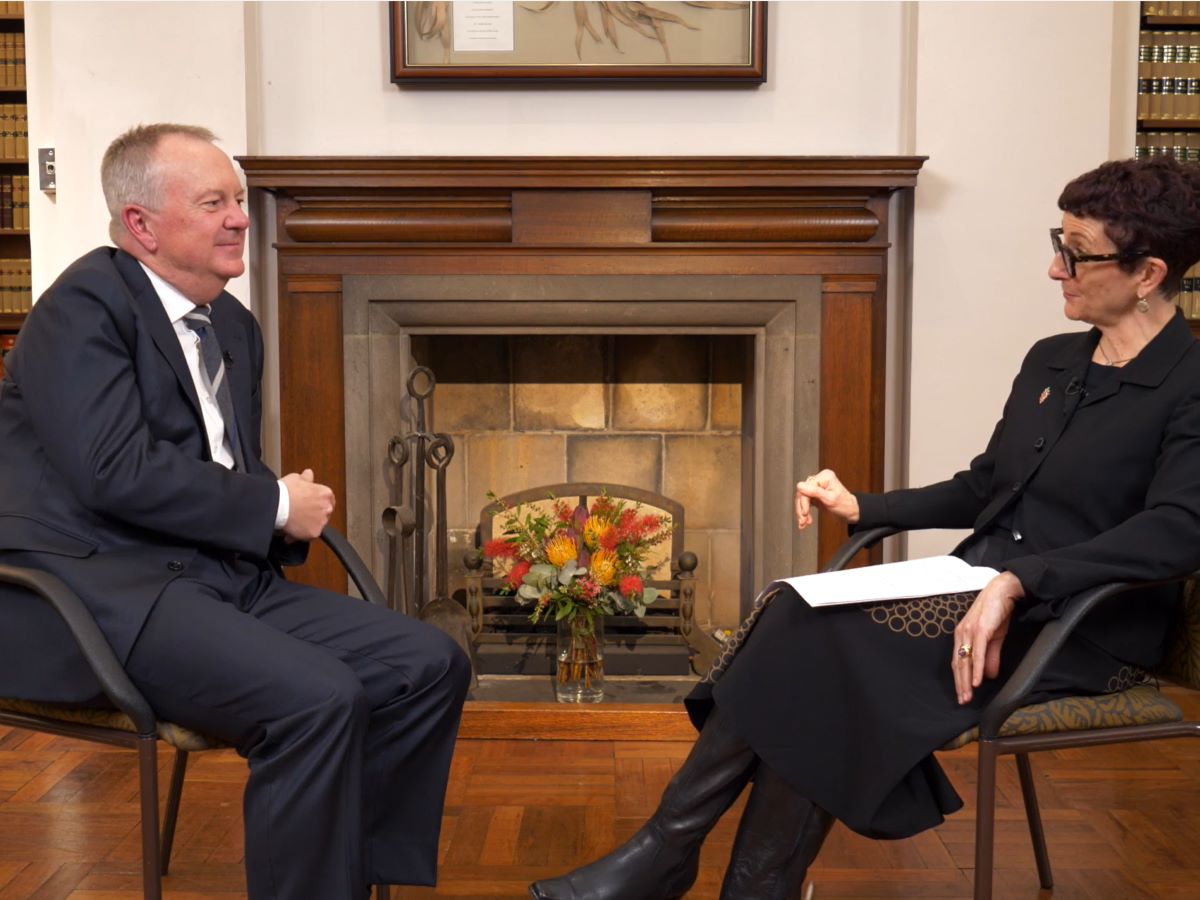The Law and You Forum: Perspectives on voluntary assisted dying
Last Thursday night Victoria Law Foundation presented its inaugural community forum
https://youtu.be/KM0wlaPmJko
Last Thursday night Victoria Law Foundation presented its inaugural community forum, exploring the voluntary assisted dying legislation currently before State Parliament, which could change the way Victorians approach end-of-life decisions for the terminally ill.
The Law and You Forum: perspectives on voluntary assisted dying was a unique opportunity for the public to hear from legal and medical experts with a range of views informed by their experience working in the front line with people who have terminal conditions.
On the panel of four, there were two lawyers, Julian Gardner AM and Kathy Wilson; and two medical professionals, Dr Scott King and Steven Amsterdam.
The forum opened with an overview of the process proposed in the bill. Of the nine stages, panellist and former Public Advocate Julian Gardner AM said: ‘It is a laborious process, and intentionally so.’ He was a member of the Ministerial Advisory Panel that advised the government on the practical aspects of the legislation.
The forum aired some valuable insights into the proposed legislation, beginning with the question of why the legislation has come up now, given that the idea for a voluntary assisted dying process has been around for decades.
Among the pressures that brought the legislation on was compelling evidence brought before the Parliamentary Committee, which investigated the need for such legislation, Mr Gardner said.
Evidence brought before that committee showed that the law around ‘mercy killings’ as it currently exists is not always enforced; that an estimated one person a week commits suicide who might fall within the proposed legislative framework; and that between one and five percent of terminally ill people endure suffering that cannot be relieved.
‘But the real answer is politics. As you know there have been many attempts to introduce this legislation, but this is the first time it’s been a government-sponsored bill. All the other ones have been private member’s bills,’ Mr Gardner said.
Panellists discussed concerns about whether the safeguards in the proposed legislation sufficiently protected the terminally ill from being subject to undue influence or coercion to end their lives.
Kathy Wilson noted that as a Wills specialist she had seen instances of adult children taking advantage of senior parents and that undue influence is difficult to prove. She said that such cases are even more difficult to prosecute, adding, ‘If there is a weakness in the legislation I’d say it’s here.’ She added that proper assessment regarding the possibility of undue influence would be helpful.
Mr Gardner responded that every day decisions are being made about end-of life treatment on behalf of people without capacity, and that’s without the 68 safeguards that frame this bill.
The panel also covered the impact of the voluntary assisted dying process on surviving loved ones. Community palliative care nurse and author Steven Amsterdam observed that if relatives don’t need to be informed in advance, that may lead to ‘complicated grief’, while Mr Gardner cited overseas research that loved ones left behind coped better with grief after a voluntary assisted dying process had occurred.
In a broad ranging discussion, the panel also looked at what the proposed legislation might mean for the medical profession, touching on what special training, support and oversight they will need, as well as opt-out provisions for those who did not want to participate.
Indicative of the range of differing views in the medical profession, Dr Scott King, Clinical Director Palliative Medicine at Calvary Health spoke of his experience. He said that since starting as a junior doctor in palliative care 17 years ago, improvements in the delivery and quality of that care has grown exponentially. He expressed confidence that palliative care will continue to improve and in time ‘be able to address all those issues which are now seen to cause suffering that cannot be relieved’.
Questions from a diverse audience delved into matters like the handling of the medication, the implications for insurance payouts and what practical distinctions there were between current unregulated practice and what is proposed in the bill.
The Law and You Forum: Perspectives on voluntary assisted dying was the first in a series which will explore significant legal issues that affect Victorians.
Publications
Subscribe to our Newsletter
Courts, Community and Confidence
Join Chief Justice Richard Niall a for a recorded conversation about the law’s role in our community and the challenges shaping justice today.


